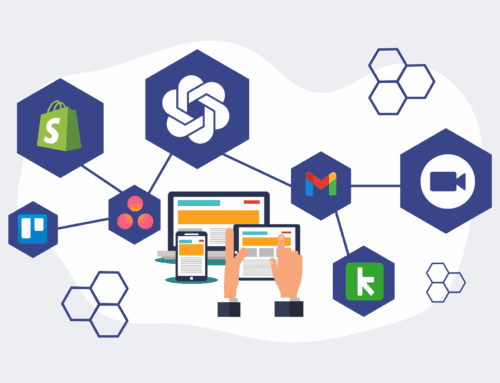Future-Proofing Your Keap Data: Strategies for Scalable Contact History
In the fast-paced world of B2B operations, especially within HR and recruiting, your Keap CRM isn’t just a contact list; it’s the living memory of your client and candidate relationships. It holds the intricate tapestry of interactions, notes, and historical data crucial for informed decision-making and sustainable growth. Yet, many businesses fall into the trap of assuming Keap’s native capabilities are sufficient for long-term data resilience and scalability. At 4Spot Consulting, we’ve seen firsthand how a reactive, rather than proactive, approach to Keap data management can lead to significant bottlenecks, lost intelligence, and hinder your ability to scale effectively.
The challenge isn’t merely about having a backup; it’s about future-proofing your contact history so it remains accessible, actionable, and robust enough to support ambitious growth without succumbing to data silos or unexpected losses. This goes beyond the basics of manual exports and delves into a strategic framework for ensuring your Keap data truly serves as a scalable asset.
The Imperative of Proactive Data Management in Keap
Consider the cumulative weight of years of interactions within your Keap account: every email, every call note, every task completion, every deal stage change. This rich history is invaluable. It informs sales strategies, refines recruitment processes, and ensures continuity in client relationships. Without a robust strategy for managing this escalating volume of data, you risk encountering several critical issues:
- **Performance Degradation:** A bloated CRM can slow down user experience and reporting.
- **Data Isolation:** Key historical context might be trapped, inaccessible for broader strategic analysis or integration with other vital business systems.
- **Compliance Risks:** Incomplete or unmanaged data can pose significant risks in regulated industries, especially concerning privacy and retention policies.
- **Scalability Constraints:** As your business grows, manual data handling becomes unsustainable, leading to errors and inefficiency.
For HR and recruiting firms, this means potentially losing critical candidate interaction histories, interview notes, or even signed contracts—data essential for compliance, re-engagement, and avoiding costly missteps. Relying solely on Keap’s default functionality without an overarching data strategy is akin to building a skyscraper without a foundational blueprint; eventually, the structure will face stress.
Beyond Basic Backups: Understanding the ‘Why’ for Scalability
Many businesses mistakenly believe that an occasional export of their Keap contacts suffices as a “backup strategy.” While exporting CSVs has its place, it fundamentally misses the point of scalable contact history. A simple export is a static snapshot; it lacks the dynamic relationships and context inherent in a CRM system. What happens to the notes attached to a contact? The tasks associated with a project? The email conversation history linked to a specific opportunity?
True future-proofing involves preserving the entire narrative of a contact. This means capturing not just core contact fields, but also:
- Detailed interaction logs and notes
- Task and appointment histories
- Custom field data crucial for segmentation and personalization
- Sales pipeline progression and communication
- Customer service tickets and resolutions
Without this comprehensive history, you’re constantly reconstructing context, leading to duplicated efforts and missed opportunities. The true cost of poor data management isn’t just data loss; it’s the erosion of efficiency, the inability to personalize at scale, and the increased risk of compliance breaches.
Crafting a Robust Data Strategy with Automation
At 4Spot Consulting, our approach to Keap data goes beyond simple recovery. We focus on establishing an “OpsMesh” – an overarching automation strategy that seamlessly integrates Keap with other critical business systems to create a truly scalable and resilient data ecosystem. This ensures not only redundancy but also enhances data utility and accessibility across your organization.
Synchronizing Keap with External Systems for Redundancy and Richness
One of the most powerful strategies for future-proofing your Keap data is to synchronize it with external, robust systems. Using integration platforms like Make.com, we can automate the extraction and transfer of rich Keap data—including custom fields, notes, and activity history—to secure, external databases or document management systems. This creates a powerful layer of redundancy, ensuring your critical intelligence isn’t solely confined to Keap.
For example, imagine a scenario where every detailed interview note or client consultation summary in Keap is automatically replicated and organized in a cloud-based document management system like Google Drive or SharePoint, linked directly back to the contact. This not only provides an external backup but also allows for richer data analysis and easier access for teams who might not operate directly within Keap day-to-day. For recruiting, this means instant access to comprehensive candidate profiles, interview feedback, and offer letters, all consolidated and secure.
Automated Archiving and Data Hygiene Protocols
As your Keap database grows, so does the amount of historical data that may not require active, daily presence in your live CRM. Implementing automated archiving protocols is key to maintaining Keap’s performance and keeping your active data clean. This involves setting up rules to move older, less frequently accessed contact histories and associated data to a more cost-effective, long-term storage solution. This process can be fully automated using tools like Make.com, ensuring a consistent and compliant approach to data retention.
Furthermore, data hygiene is paramount. Automated processes can identify and merge duplicate contacts, standardize data entries, and even enrich contact profiles with external information. This keeps your Keap data accurate, relevant, and highly usable. Imagine AI-powered routines that scan historical notes, categorize interactions, and highlight key trends, turning raw data into actionable insights without manual effort.
The 4Spot Consulting Approach: Building Your Data Fortress
Future-proofing your Keap data isn’t a one-time task; it’s a strategic imperative. At 4Spot Consulting, our journey with clients begins with an `OpsMap™` – a strategic audit designed to pinpoint existing data vulnerabilities, uncover inefficiencies, and identify opportunities for automation within your Keap environment and beyond. This allows us to craft a tailored `OpsBuild` plan, implementing bespoke automation solutions using Keap, Make.com, and other best-in-class tools to synchronize your data, automate archiving, and enforce robust data hygiene.
Our `OpsCare` program ensures ongoing monitoring, optimization, and iteration of your data infrastructure, guaranteeing that your Keap data remains a scalable, secure, and accurate “single source of truth.” We don’t just solve problems; we build resilient systems that empower your HR and recruiting teams to operate with confidence, reduce manual errors, and scale without limits. By proactively managing your Keap contact history, you transform it from a potential liability into a powerful strategic asset, ready to support every future business endeavor.
If you would like to read more, we recommend this article: The Essential Guide to Keap Data Protection for HR & Recruiting: Beyond Manual Recovery








